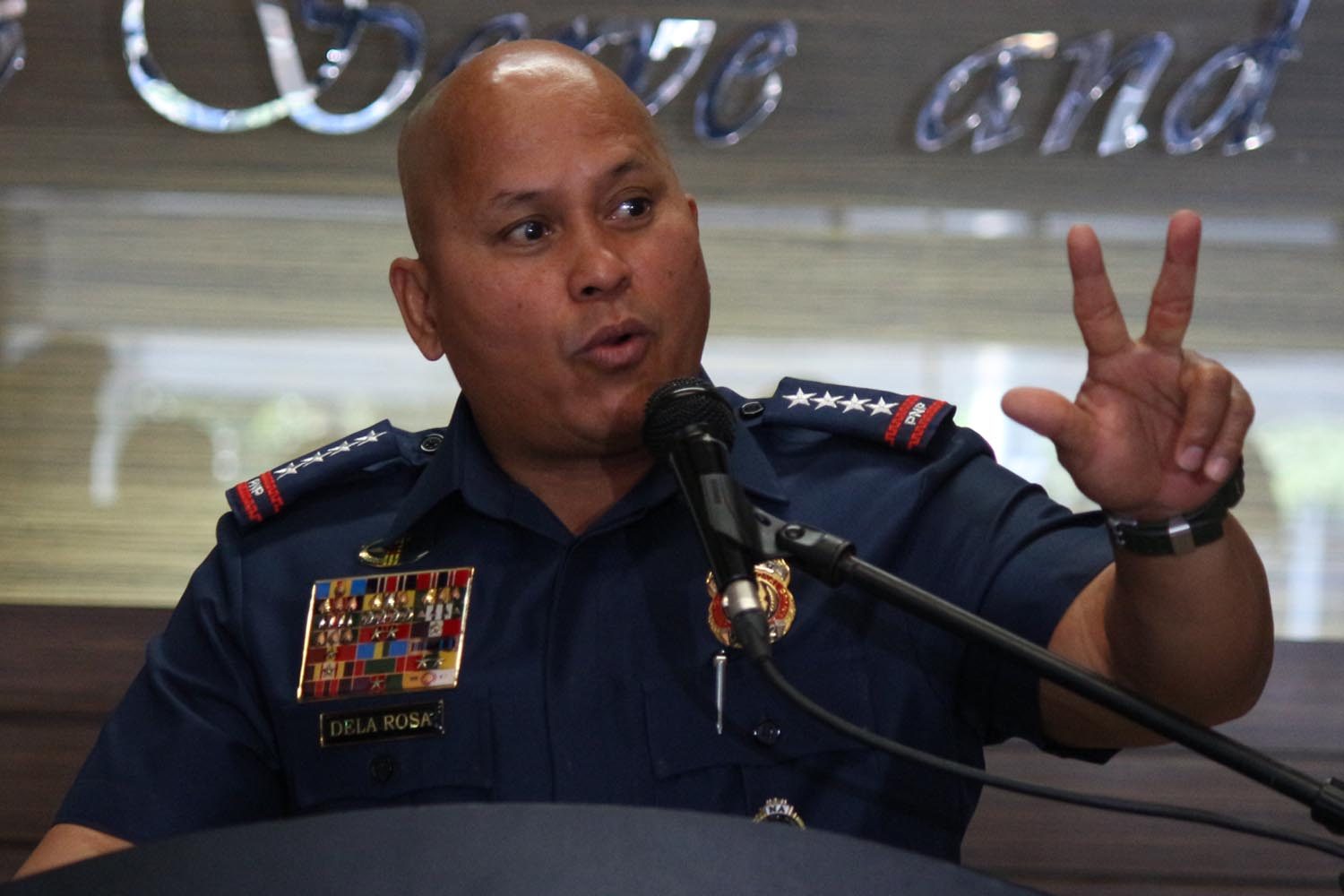SUMMARY
This is AI generated summarization, which may have errors. For context, always refer to the full article.

In press conference after press conference, in the aftermath of another supposed bomb threat or improved explosive device scare, Philippine National Police (PNP) chief Director General Ronald dela Rosa has had to deny, time and time again, an alleged plot to declare martial law in the Philippines once more.
“Please do not expect that to happen. We do not have plans, that’s far from our minds. We will just make sure that [no acts of terror] happen again. We’ll make sure nothing gets past us,” the PNP chief told media shortly after he said the police force was under “terror alert level 3” after a foiled blast near the United States embassy in Manila.
It’s hard not to ask questions about rumors of a supposed plan to declare martial law in the Philippines.
After all, Dela Rosa’s boss, President Rodrigo Duterte himself has admitted that he’s “tempted” to declare martial law. In another instance, he said he could suspend the privilege of the writ of habeas corpus should lawlessness continue.
Suspending the privilege means law enforcers – police included – may arrest anyone despite the absence of a warrant.
The privilege was suspended during the time of the late dictator Ferdinand Marcos, at the same time he declared martial law. The Marcos regime is marred by human rights violations, enforced disappearances, and millions of pesos stolen from government coffers.
But despite Duterte’s pronouncements about martial law, Dela Rosa is one (former) soldier who would really rather not see it happen again.
“I don’t want martial law. I still remember the suffering we had to go through during martial law. My father was a victim of Martial Law. He was a tricycle driver then and he was beaten up by PC (Philippine Constabulary) because he was overloading. I was riding on top of the tricycle,” Dela Rosa told Rappler last week.
In a previous interview with media, Dela Rosa detailed the kind of torture his own father went through. “He was fed grilled bangus that still had hot charcoal on it. They force-fed my father and his face was swollen. That’s Martial Law for me.”
He was a victim of the PC’s abuse of power too. “We were caught violating the curfew because we were watching boxing. We were walking in our barangay, the PC caught us and made us ride the 6×6.”
“We were brought to the PC barracks, made to line up, made to face a machine gun and then we were told to pray because we were going to face a firing squad because of the curfew violation. That’s Martial Law for me. Do you think I’d advice Martial Law myself?” he added.
Since September 2016, the Philippines has been under a state of national emergency.
PC, PNP, Class of ’86
Ironically, Dela Rosa ended up a commissioned officer of the PC, the precursor to the PNP, after he graduated from the Philippine Military Academy (PMA) in 1986.
Why join the service that he saw abuse its power firsthand?
“That’s fate, destiny,” explained Dela Rosa. PMA classes sometimes draw lots to determine which future junior officers go to which service.
The PMA class of 1986 also happens to be the first class to graduate from the prestigious academy after EDSA Revolution toppled Marcos.
“Welcome, my soldiers,” the late president Cory Aquino told the class then.
Years later, the PC would merge with the Integrated National Police (INP), forming the fully civilian PNP. Decades later, Dela Rosa lead the police force in its war on drugs.
Still, Dela Rosa, who considers himself a “good soldier” says should the current government declare martial law and he be tasked to implement it, he’ll know how to do it right.
“I know how to implement it in a way that it won’t violate human rights because I was a victim of martial law myself,” he said.
Police have been accused of violating human rights and due process in the name of Duterte’s war on drugs. – Rappler.com
Add a comment
How does this make you feel?
There are no comments yet. Add your comment to start the conversation.